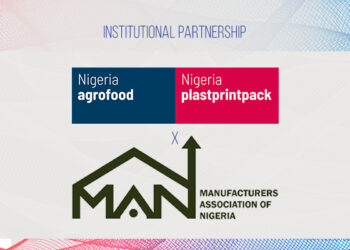The Manufacturers Association of Nigeria (MAN) has sounded an alarm regarding the detrimental effects of Nigeria’s staggering N77 trillion public debt burden on its members.
MAN highlights that excessive and multiple taxes imposed on manufacturers by the government are an attempt to generate revenue for debt repayment.
MAN’s concerns are outlined in the Q1 2023 Manufacturers CEO Confidence Index (MCCI) report titled “Special Focus: MAN at the Receiving End of National Debt Crisis.” The report links higher debt repayment to increased revenue and criticizes the government for creating an unfavourable business environment through indiscriminate high taxation of manufacturers.
Impact of debt servicing on manufacturers
The report also highlights the risk of a debt service-to-revenue ratio exceeding 100%, which could lead the new administration to continue borrowing or hinder vital infrastructure investment, hampering economic recovery and manufacturing sector growth.
Furthermore, the report underscores the adverse impact of escalating public debt on the manufacturing sector. One significant consequence is the crowding out of private investment due to reduced credit availability and higher lending rates caused by mounting domestic debt.
Servicing external debts in foreign currencies intensifies the demand for foreign exchange, aggravating the naira’s depreciation.
This increases costs for importing essential non-locally produced inputs, straining manufacturers’ finances.
The report emphasizes the drain on foreign exchange reserves due to increased debt servicing, worsening the persistent foreign exchange scarcity that hampers the manufacturing sector.
Surging debt and capital outflow
The association also underscored the connection between surging public debt and dwindling foreign investment and capital inflow, exacerbating the foreign exchange scarcity challenge.
The government’s increasing borrowing for recurrent expenses sidelines critical infrastructure projects necessary for manufacturing sector growth.
MAN contends that Nigeria’s core challenge is not revenue generation but rather mismanagement of collected revenue, leading to financial discrepancies.
The report highlights that substantial taxes are contained in the informal sector without proper remittance.
MAN’s recommendation
In response to the colossal N77 trillion debt burden, MAN proposes a series of recommendations.
These include broadening the tax base, enforcing fiscal transparency, rehabilitating local refineries, investigating financial irregularities, coordinating creditors, and prioritizing transparency and debt management.
Others include optimizing resource allocation, strengthening monitoring mechanisms, fortifying anti-corruption efforts, ensuring efficient government spending, capitalizing on states’ revenue potentials, and diversifying income streams through strategic sectoral development.





















